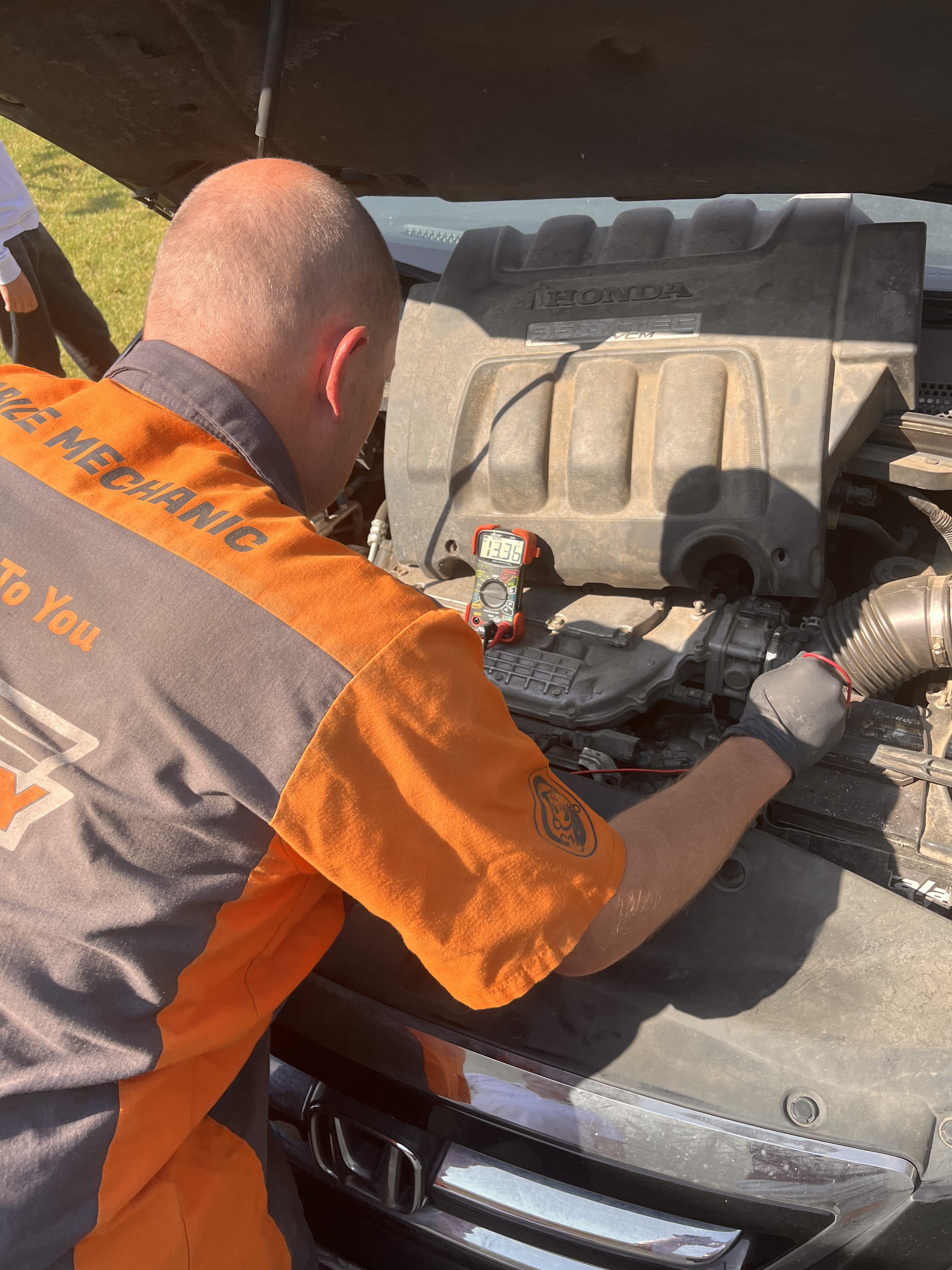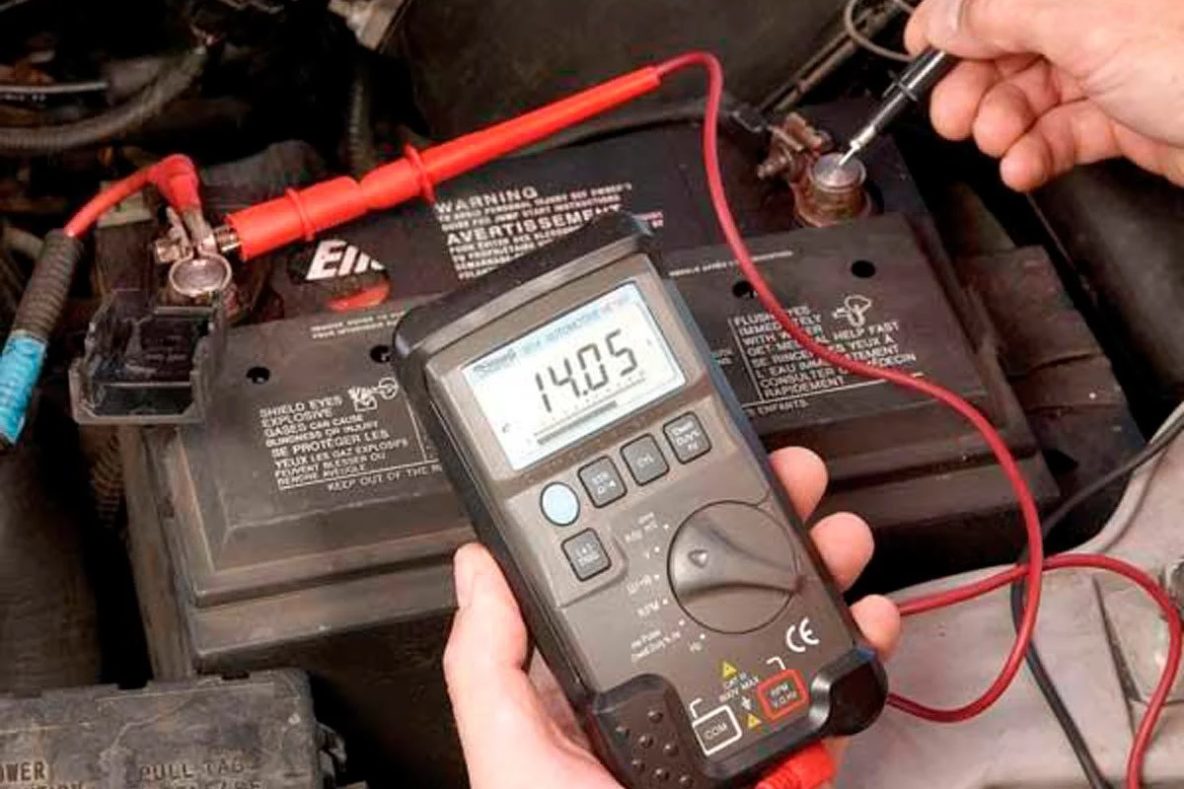Troubleshooting Alternator Problems
In this in-depth blog, we will explore the common signs of an alternator going bad, how to troubleshoot alternator problems, and why it's crucial to address them promptly.
Your vehicle's alternator is a vital component of its electrical system, responsible for generating electricity to power various electrical components and charge the battery. When your alternator is functioning correctly, you can enjoy uninterrupted drives with all your electronic gadgets and essential systems operating smoothly. However, like any mechanical part, alternators are not immune to problems.
What Does The Alternator Do?
An alternator is an electrical generator that converts mechanical energy into electrical energy. It is typically connected to the engine's crankshaft through a serpentine belt or V-belt. As the engine runs, it spins the alternator's rotor, generating alternating current (AC) that is then converted into direct current (DC) by a rectifier. This DC power is used to charge the battery and provide electricity to the vehicle's electrical systems.

The alternator serves three primary functions in your vehicle:
- Charging the Battery: It replenishes the energy used by the battery to start the engine and power electrical components when the engine is off.
- Powering Electrical Systems: The alternator provides electricity to various systems, including lights, HVAC, radio, and power windows.
- Maintaining Voltage: It ensures a consistent voltage supply, preventing fluctuations that could damage sensitive electronics.
Troubleshooting The Alternator Problems
1. Dimming or Flickering Headlights
One of the most noticeable signs of alternator problems is dimming or flickering headlights. When you start your car and notice that your headlights are not as bright as they should be, or they flicker intermittently, it's often a indicator that the alternator is not generating enough electrical power. This can pose a significant safety risk, when driving at night or in low-light conditions.
- Causes: Dimming or flickering headlights can result from a worn-out alternator, a loose or damaged alternator belt, or faulty wiring connections.
- Solution: If you experience this issue, it's essential to have your alternator and electrical system inspected by a qualified mechanic. They can diagnose the specific problem and replace any worn-out components.
2. Warning Lights on the Dashboard
Most cars today are equipped with a range of warning lights on the dashboard that can indicate various problems. The battery warning light, for instance, may illuminate for related alternator problems. When this light turns on while you're driving, it suggests that the battery is not receiving an adequate charge. This is often linked to alternator problems.
- Causes: The battery warning light can be triggered by a failing alternator, a loose alternator belt, or corroded battery terminals.
- Solution: As soon as you see the battery warning light, it's a good idea to consult a mechanic about what happened. They'll conduct a thorough inspection to identify the root cause and replace or repair the necessary components.
3. Strange Noises
Unusual noises coming from under the hood of your car can be a sign of alternator trouble. A common noise associated with alternator problems is a high-pitched whining or grinding sound. This noise is often more pronounced when you accelerate the vehicle.
- Causes: The whining or grinding noise may result from worn-out bearings inside the alternator, or a loose belt. This could be unrelated to the alternator as another pulley may have seized too.
- Solution: A mechanic can determine the exact source of the noise and recommend the appropriate repairs.
4. Weak or Dead Battery
A weak or dead battery is a common consequence of alternator problems. The alternator's primary function is to recharge the battery while the engine is running. If the alternator is not doing its job correctly, the battery will eventually lose its charge, causing difficulties starting your car. Simply replacing the dead battery with a poor performing alternator will only result in having to purchase another battery.
- Causes: Alternator issues such as a malfunctioning voltage regulator or worn-out brushes can lead to a failure in charging the battery properly.
- Solution: If you frequently experience battery issues, have both the alternator and battery tested by a professional. Depending on the severity of the alternator problem, you may need to replace the alternator and possibly the battery.
4. Electrical Component Malfunctions
The alternator provides power to various electrical components in your car including the radio, air conditioning, power windows, and more. If you notice that these components are not working correctly or are malfunctioning, it could be a sign of alternator problems.
- Causes: A failing alternator may not provide sufficient electrical power to these components, causing them to operate erratically or not at all.
- Solution: When you encounter electrical component malfunctions, it's advisable to have your alternator and electrical system thoroughly checked by a professional mechanic. They can diagnose the issue and perform the necessary repairs or replacements.
5. Stalling or Poor Acceleration
A malfunctioning alternator can also impact your car's engine performance. If you experience stalling, poor acceleration, or irregular engine operation, it may be due to inadequate electrical power supply to the engine's control systems.
- Causes: An alternator that is not functioning correctly can disrupt the engine's fuel injection and ignition timing, leading to performance issues.
- Solution: Consult a mechanic to diagnose and address any engine performance problems related to alternator issues. They can repair or replace the alternator to restore your vehicle's performance.
Your car's alternator plays a vital role in keeping its electrical system running smoothly. Recognizing the common signs of alternator problems is crucial for maintaining the reliability and safety of your vehicle. If you encounter any of the signs mentioned in this guide, it's essential to take prompt action and consult a qualified mechanic. Ignoring alternator issues can lead to more significant problems, including complete engine failure and costly repairs. Regular maintenance and timely repairs can help ensure that your alternator continues to function correctly, keeping your vehicle in top condition.

